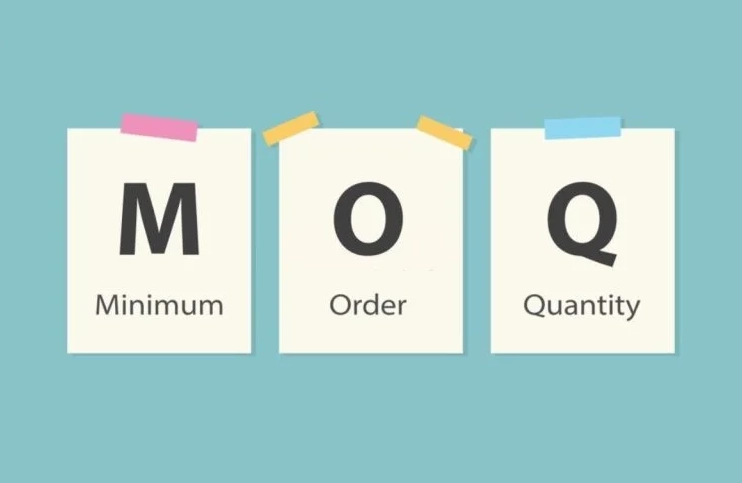What is Minimum Order Quantity (MOQ)?
Minimum Order Quantity (MOQ) refers to the minimum number of units a supplier is willing to sell in a single order. Suppliers set order limits to ensure profitability and efficiency in their production process. MOQs can be expressed in units (e.g., 500 t-shirts), monetary value (e.g., $1000 minimum purchase), or sometimes a combination of both. Understanding MOQs is crucial because they directly influence pricing, inventory holding costs, and the relationships you build with your suppliers.
Understanding Minimum Order Quantity (MOQ) and Its Importance
How MOQ Affects Product Pricing and Profit Margins: MOQ directly impacts the price per unit. Generally, the higher the MOQ, the lower the per-unit cost. However, you need to balance this with your sales projections and storage capabilities to avoid tying up too much capital in inventory. Miscalculating this balance could eat into your profit margins.
- Low MOQ suppliers are ideal for startups, businesses testing new products, or those with limited storage space. High MOQ suppliers often offer better pricing but require a larger upfront investment and greater storage capacity.
- MOQs allow manufacturers to achieve economies of scale. By producing larger batches, they can reduce per-unit production costs, minimize setup times, and optimize their manufacturing processes.
- To cover the costs of production and distribution. Smaller orders may not be cost-effective for suppliers, as they may not be able to cover the fixed costs of production, such as labor and overhead.
- To manage inventory levels. MOQs help suppliers to avoid overstocking and understocking. By knowing the minimum amount of product that they need to sell, suppliers can better plan their production and avoid having too much or too little inventory on hand.
- To reduce the risk of stockouts. Stockouts can occur when a supplier runs out of a product before they are able to replenish their inventory. MOQs can help to reduce the risk of stockouts by ensuring that suppliers have enough product on hand to meet demand.
- To incentivize buyers to purchase larger quantities. MOQs can incentivize buyers to purchase larger quantities of a product, which can lead to higher sales volumes for suppliers. This can be beneficial for both suppliers and buyers, as it can lead to lower costs per unit for both parties.
How MOQ Affects Your eCommerce Business
Minimum Order Quantity For New Dropshippers & Online Store Owners
- How MOQ Impacts Product Sourcing and Order Fulfillment: Dropshippers typically avoid holding inventory, but understanding MOQs is still essential. Some suppliers may offer dropshipping services but still have MOQs for initial setup or custom product requests. If you are not dropshipping, MOQs require careful planning to ensure you can sell the minimum quantity within a reasonable timeframe.
- Finding the Best Way to Start an Online Store While Managing MOQ Challenges: Start by researching suppliers with low MOQs or those who offer dropshipping programs. Consider starting with a niche market where demand is predictable, allowing you to confidently meet MOQs.
- Cash flow: MOQs can tie up a lot of cash for online retailers, especially if they are required to purchase a large quantity of inventory upfront. This can make it difficult for online retailers to invest in other areas of their business, such as marketing or product development.
- Storage: Online retailers may not have the space to store a large quantity of inventory, especially if they are just starting out. This can force them to rent additional storage space, which can be an additional expense.
Minimum Order Quantity For Retailers & Bulk Buyers
- Negotiating MOQ with Manufacturers and Wholesalers: Negotiation is key. Build a strong relationship with your suppliers, demonstrate your understanding of their business needs, and be prepared to offer concessions (e.g., longer-term contracts) in exchange for lower MOQs.
- Strategies to Lower MOQ Requirements Without Sacrificing Profit: Consider offering to pay a higher price per unit for a lower MOQ, consolidating orders with other retailers, or pre-selling products to gauge demand and justify a larger order.
- Product testing: MOQs can make it difficult for online retailers to test new products, as they may have to purchase a large quantity of a product before they know if it will sell well. This can be a risky proposition, as online retailers could be stuck with a lot of unsold inventory if the product does not sell well.
- Quality: MOQs can also help to ensure that online retailers receive high-quality products from their suppliers. Suppliers are more likely to invest in quality control if they know that they are selling a large quantity of a product to a buyer.
How to Make a Purchase Order with MOQ in Mind
Steps to Make a Purchase Order That Meets MOQ Requirements:
- Clearly State the MOQ: Ensure the purchase order explicitly states the agreed-upon MOQ.
- Specify Product Details: Include all relevant product specifications (size, color, material, etc.) to avoid errors.
- Confirm Pricing: Double-check the per-unit price and total cost, considering any discounts for bulk orders.
- Outline Payment Terms: Clearly define payment terms, including deposit amounts and payment schedules.
- Specify Delivery Details: Provide accurate shipping addresses and preferred shipping methods.
Tips for Ensuring Quality When Ordering in Bulk:
- Request samples before placing a large order.
- Implement a quality control process to inspect incoming shipments for defects or discrepancies.
Discover Uniqbe store that offer seamless purchase order, whether you are buying just one or in-bulk, our system is ready for you to make profit.
Understanding Lead Times and Production Schedules for Different Suppliers:
- Factor in lead times when planning your inventory.
- Different suppliers will have varying production schedules, which can impact your ability to fulfill orders promptly.
Finding the Right Suppliers for Your MOQ Needs
Where to Buy from Manufacturers with Flexible Minimum Order Quantity (MOQ)
- B2B Marketplaces: Alibaba, Global Sources, and ThomasNet host numerous suppliers, some of whom offer flexible MOQs, especially for sample orders or initial partnerships.
- Supplier Directories: Industry-specific directories can help you find niche suppliers who may be more willing to accommodate smaller order quantities.
- Factory Direct Options: Attending trade shows or directly contacting factories can sometimes lead to more favorable MOQ negotiations.
Best One-Product Website Strategies for MOQ Management
- How to Launch a One-Product eCommerce Website with Low MOQ: Focus on high-quality product photography, compelling product descriptions, and targeted marketing to drive sales and justify larger orders over time.
- Identifying Niche Products with Suppliers That Offer Small-Batch Orders: Research emerging trends and identify niche products where suppliers are more likely to offer small-batch orders to test market demand.
For small and big retailers, Uniqbe offers low minimum order quantity for electronic consumer products, learn more about dropshipping opportunity
Best Practices for Managing MOQ in Your Business
When to Accept or Negotiate MOQ Terms
- Understanding When MOQ is Non-Negotiable and When You Can Request Lower Order Limits: MOQs may be non-negotiable for highly customized products or when dealing with smaller suppliers. However, larger manufacturers may be more willing to negotiate, especially if you can demonstrate strong sales potential.
Alternative Solutions for High MOQ Requirements
- Partnering with Other Businesses to Split Large Orders: Collaborate with complementary businesses to combine orders and meet MOQs.
- Using Print-on-Demand or Dropshipping to Bypass MOQ Limitations: Print-on-demand and dropshipping services allow you to sell products without holding any inventory, effectively eliminating MOQ concerns.
Main key takeaways on Minimum Order Quantity
Minimum Order Quantity is a vital concept for anyone owning an online store. By understanding MOQs, negotiating effectively, and exploring alternative sourcing strategies, you can minimize your upfront investment, manage your inventory efficiently, and maximize your profitability.
- Recap of key takeaways on MOQ, purchase orders, and supplier negotiation.
- Actionable steps for owning an online store while managing MOQ effectively.
- Encouraging readers to research and compare supplier MOQ policies before making purchasing decisions.
Before making any purchasing decisions, thoroughly research and compare supplier MOQ policies. Your success depends on making informed choices that align with your business goals and financial capabilities.
People Also Ask
- How to determine minimum order quantity?
- Answer: Suppliers typically calculate MOQ based on their production costs, setup times, and desired profit margins. They factor in the cost of raw materials, labor, and overhead to determine the minimum quantity needed to make a profitable production run.
- What is the minimum quantity requirement?
- Answer: The minimum quantity requirement is the lowest number of units a supplier is willing to sell in a single order. This requirement helps suppliers cover their production costs and maintain profitability.
- What is EOQ with minimum order quantity?
- Answer: Economic Order Quantity (EOQ) is a calculation that determines the optimal order quantity to minimize total inventory costs (including holding and ordering costs). When a supplier has an MOQ higher than your calculated EOQ, you’ll need to order at least the MOQ, even if it’s more than the economically optimal amount. This might necessitate adjustments to your inventory management strategy.
- How to negotiate minimum order quantity?
- Answer: To negotiate MOQ, build a relationship with the supplier, demonstrate your understanding of their costs, offer to pay a higher price per unit for a lower MOQ, commit to future orders, or explore alternative product options with lower MOQs.
Looking for more content about dropshipping & wholesale? Check out our Uniqbe News & Blog and in the meanwhile do sign up with us, your trustworthy sourcing and fulfillment partner.


 Hot Articles
Hot Articles